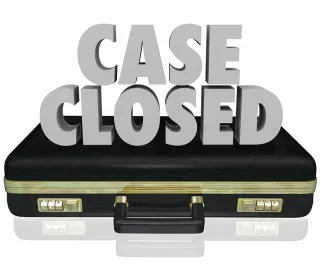Guidance Lists Factors DOJ Attorneys Should Use to Decide Whether to Dismiss a False Claims Act Case – Even Over the Objections of Private Relator Plaintiffs
The Department of Justice (DOJ) has issued an important internal memorandum to attorneys at the DOJ’s Commercial Litigation Branch, which is responsible for civil False Claims Act enforcement. Dated January 10, 2018, and signed by DOJ Civil Fraud Section Director Michael Granston, the memorandum (“Granston Memo”), provides a framework for DOJ attorneys to use when considering whether to dismiss False Claims Act qui tam cases.
The Granston Memo identifies seven factors that support governmental dismissal of qui tamlawsuits. While the Granston Memo stops short of expressly directing DOJ attorneys to dismiss more cases initiated by private relators, it seems intended to encourage DOJ attorneys to consider doing so in the face of ever-increasing numbers of qui tam suits.
Authority to Dismiss and the Factors DOJ Will Consider
Under the False Claims Act, the DOJ has broad authority to dismiss qui tam cases over the objections of the relator. Traditionally, the DOJ used this authority sparingly. The Granston Memo, however, lays out seven factors that can support DOJ dismissal of a case. These factors are not mutually exclusive, and the DOJ may dismiss a case for one reason or a combination of reasons. The seven factors are:
-
Whether the “qui tam complaint is facially lacking in merit, either because the relator’s legal theory is inherently defective, or the relator’s factual allegations are frivolous.”
-
Whether the qui tam action “duplicates a pre-existing government investigation and adds no useful information to the investigation.”
-
Whether the relevant government agency “has determined that a qui tam action threatens to interfere with an agency’s policies or the administration of its programs and has recommended dismissal to avoid those effects.” Examples given include situations where litigation would negatively affect an agency’s operations, and cases where meritless litigation “could cause a critical supplier to exit the government program or industry.”
-
Whether dismissal is “necessary to protect the Department’s litigation prerogatives.” Examples include where there are excessive numbers of lawsuits pending around the country; where the litigation could result in unfavorable precedent; and where certain claims that the government has declined to pursue, but a private relator continues to push, are obstructing settlement.
-
Whether dismissal will help to “safeguard classified information.” The Granston Memo notes that this is particularly true in cases “involving intelligence agencies and military procurement contracts.”
-
Whether costs of litigation “are likely to exceed any expected gain.” The Granston Memo points out that the government incurs costs even in cases in which it does not intervene, including the costs involved in monitoring the non-intervened case and in responding to discovery.
-
Whether there are “problems with the relator’s action that frustrate the government’s effort to conduct a proper investigation.” Here, the Granston Memo provides the example of a relator that failed to provide all material information to the government, as required by the False Claims Act.
The memorandum also advises DOJ attorneys to discuss whether affected agencies believe the case should be dismissed, and to seek the agreement of the relevant agency before dismissing a case.
Additional Considerations
In addition to providing a framework for the dismissal of entire cases, the Granston Memo explains that the DOJ can dismiss problematic portions of a lawsuit while allowing other claims asserted in the same lawsuit to continue.
The Granston Memo also instructs DOJ attorneys to “consider advising relators of perceived deficiencies in their cases as well as the prospect of dismissal” so that relators can consider dismissing the action on their own. According to the memorandum, since January 1, 2012, relators have dismissed over 700 qui tam actions voluntarily after learning that the DOJ was declining to intervene. In practice, it may turn out that the Granston Memo will not result in many more dismissals by DOJ, but rather in more voluntary dismissal by relators who learn of the “perceived deficiencies in their cases” and the “prospect of dismissal.” In fact, DOJ trial attorneys do not themselves have the authority to dismiss a case voluntarily. As the Granston Memo points out, under existing DOJ rules, dismissal requires the approval of the Assistant Attorney General for the Civil Division (for some lower-dollar cases, this authority has been delegated to the United States Attorney for the District where the action was filed).
There has been some public debate among False Claims Act practitioners as to whether the Granston Memo represents a new policy for the DOJ, or the written memorialization of prior conduct. See, e.g., “FCA Memo No Proof of New Direction on Dismissals,” Law360 (Jan. 26, 2018). It appears most reasonable to view the Granston Memo as a significant development that reflects an increased willingness on the part of the DOJ to exercise its power to dismiss problematic qui tam actions.





 />i
/>i

